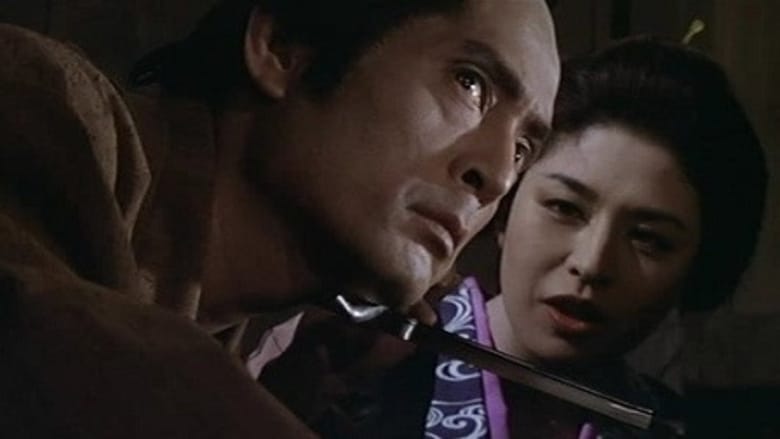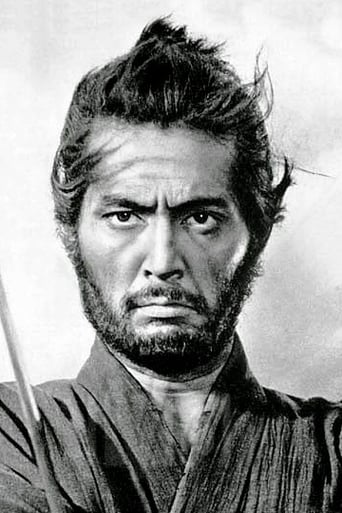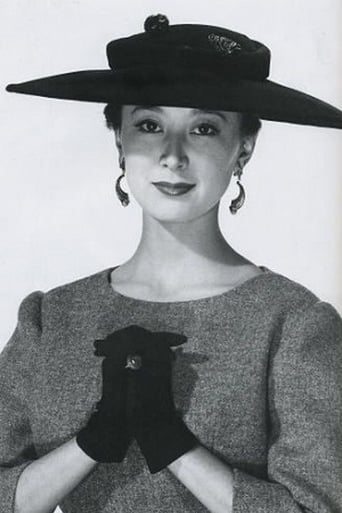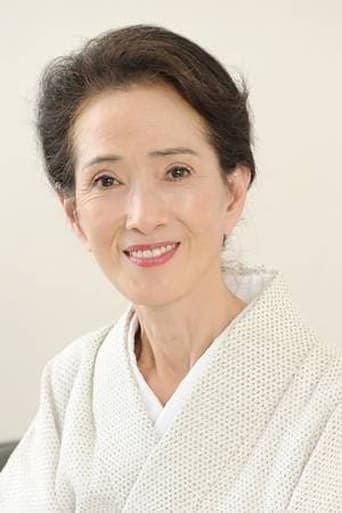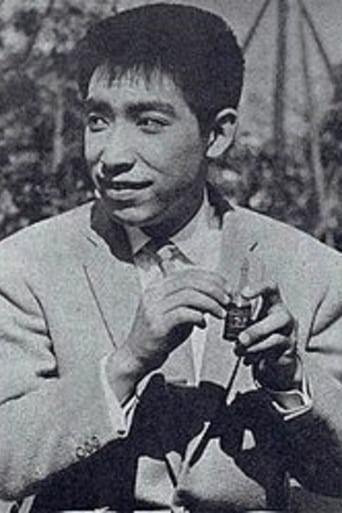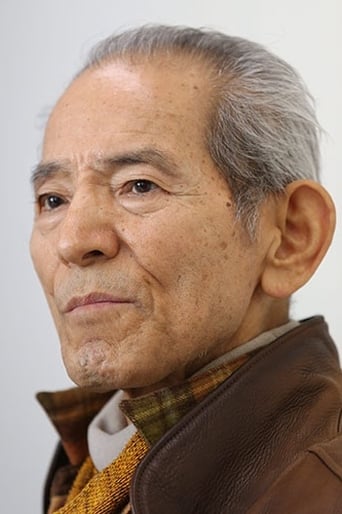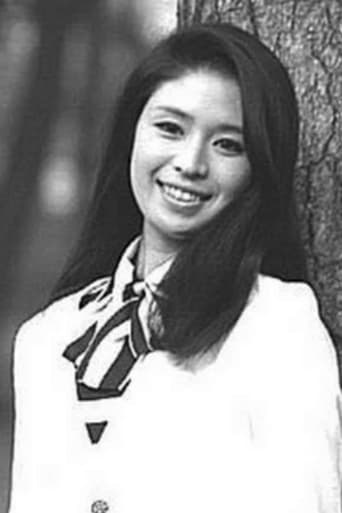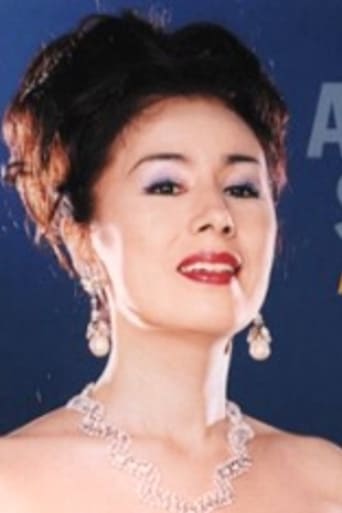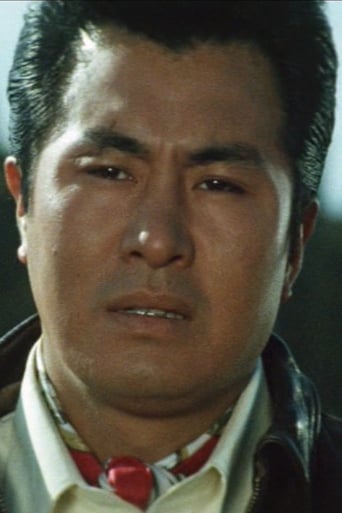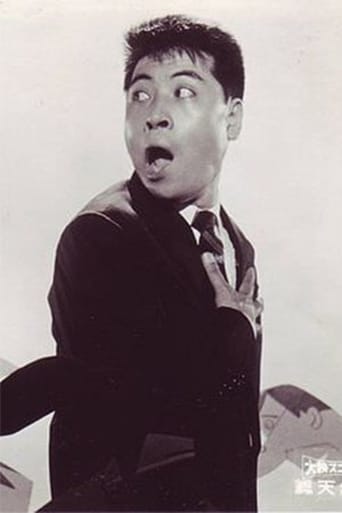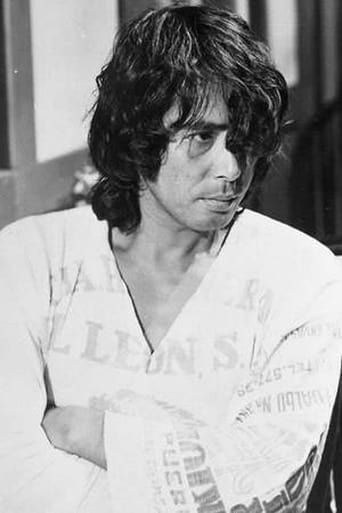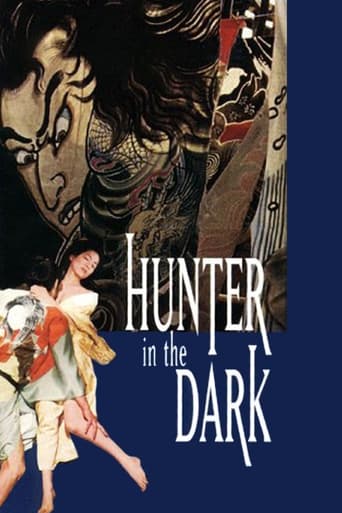
Yataro Tanigawa, a one-eyed hired assassin, impresses yakuza boss Gomyo Kiyoemon with his skill. Gomyo hires Tanigawa as his bodyguard, or yojimbo, to protect him during an inter-clan conflict. Tanigawa quickly rises in stature in the clan, but finds his boss's enemies almost overwhelming.
Similar titles
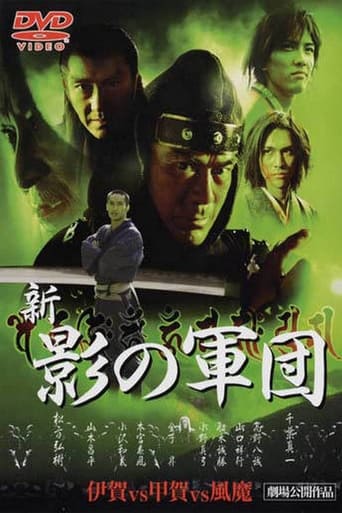
Reviews
Best movie of this year hands down!
Good films always raise compelling questions, whether the format is fiction or documentary fact.
if their story seems completely bonkers, almost like a feverish work of fiction, you ain't heard nothing yet.
I enjoyed watching this film and would recommend other to give it a try , (as I am) but this movie, although enjoyable to watch due to the better than average acting fails to add anything new to its storyline that is all too familiar to these types of movies.
A violent film involving the jockeying for position among a group of warriors that resemble the characters in any American gangster film. The fact that they are Ronin or Samurai, trying to off one another, doesn't change this. At times it is hard to figure out who the good guys are (or the good girls). Is the boss really all that great? Is his opponent really worthy of leadership. Does the one-eyed guy have too much baggage and how is he viewed in the entire fabric of his world? Is he really a piece of dangerous meat? Is he just a weapon or does he speak for anything? There is a lot of slashing and stabbing and blood spurting and crunching sounds. It must have been hard to be part of the political being of the times. But then, who are these guys and why do they have so much power? Anyway, a bit confusing as to what happened, who won, and what's next?
If Hideo Gosha's movies go in twos, then Hunter in the Dark would be the companion piece to Bandit vs Samurai Squad. The bipolar narrative axis in Hunter once again revolves around themes of sociopolitical injustice, revenge and identity but as much as it shares with its antecedents in Gosha's filmography, it's also a genre statement of sorts.Yataro Tanigawa for one, the one-eyed ronin with exceptional sword skills and no memory of his past, appears to be a reinvention of the Tange Sazen character (another one-eyed swordsman with identity issues) Hideo Gosha directed in his Tange Sazen - The Secret of the Urn in 1966. By casting Tanigawa from the same mold of 60's serialized alienated ronins like Zatoichi or Tange Sazen, the director seems to be invoking the pulpy past of samurai cinema. By 1979, well past the genre's heyday, this is already post-modernism of some kind.Gosha then places this character in the middle of a plot that resembles the narrative complexity of Bandit vs Samurai Squad. It is interesting then to note how Tanigawa's plot progresses and climaxes, revealing the genre ground Hunter occupies in the process. Gosha with-helds information about Tanigawa's past for as long as possible, revealing bits and pieces of visual clues in the form of short flashbacks other characters experience. Tanigawa himself seems content with his existence, not preoccupied with questions of identity and past.His past is revealed to him by a Buddhist priest along with the very important mission he has to undertake - to restore the Kitamae clan to power. After a short fight the temple where the revelation takes place bursts in flames and it is there that Gosha creates perhaps the most visually arresting images in the film. The scene combines metaphysical iconography, visions of some kind of hell on earth with Tanigawa staggering through the flames and slashing at the air with his sword as he copes with his returning memory.The important difference however that shatters typical genre expectations is that Tanigawa then refuses to take action. It's not that he doesn't find the cause noble - restoring the unfairly abolished and persecuted Kitamae clan. But "it's not his cause". After the gradually more and more violent protagonists in chambaras of the early 70's, Tanigawa regresses back to the worldview of Yojimbo: "a long life eating mush is best". It is through this genre anachronism that Gosha's sense of irony shines through. Taking it one step further, the defaced ronin finds no glory in death either as he dies a meaningless death in the hands of a yakuza woman.With Tanigawa out of the picture, the mandatory catharsis of the final duel falls on the shoulders of Gomyo (Tatsuya Nakadai), the yakuza boss whom Tanigawa worked for. The final irony Gosha orchestrates for our eyes is that it is a yakuza who challenges Samon Shimoguni (Sonny Chiba in a villainous role that personifies the political corruption of the Tokugawa Shogunate). Yakuzas belonged in the 'non-human' caste in the Tokugawa social system - along with gravediggers, prostitutes, beggars, tanners etc.The narrative is thick and heavy but that is the main plot line as I see it. I hope what I wrote above about the central motifs will make reading into the film a little easier and maybe a little more rewarding too. Subplots include the scheming between rival yakuza bosses in the Edo area (it's what provides the starting point of the movie), Tanigawa and his past, Samon Shimoguni's plot to eliminate the remainders of the Kitamae clan so he can seize their land, betrayal and revenge.Beneath everything however lies Gosha's play on identity and an almost post-modern examination of chambara characteristics. He wisely goes with the flow of the times that saw Japanese period films incorporating more and more exploitation elements - there's both bloodshed in the swordfights and tasteful nudity. It's not an easy watch -nor is it recommended- to beginners of both chambara and Asian cinema, but it's well worth the time for the aficionado.
I'm a big fan of Japanese cinema, but this is the only Hideo Gosha film I've seen so far. It was well worth the wait! Years ago I read a review of another Gosha film, "The Wolves", and the writer referred to it at least twice as "self-indulgent". As it turns out, this description can also be applied to "Hunter in the Dark". Gosha introduces multiple plot threads in rapid succession, tying them together only at his leisure. You have to be attentive and patient; the payoff comes during the (very intense) fight scenes. Flawed protagonist Tatsuya Nakadai is great as always, and Shinichi 'Sonny' Chiba shows remarkable restraint as his nemesis. Storywise, "Hunter in the Dark" is a real downer--as many martial arts films are--but it's superbly directed and acted. There's also some nudity and sex that is more or less gratuitous; I've read that sex was a vital ingredient in Gosha's movie-making formula, but it doesn't really seem to add anything to this film. 7 and 1/2 stars.
A lot of famous faces. Fun to watch "Sonny" Chiba on home turf. And isn't that "Tiger Tanaka" with the bald wig? Nakadai Tatsuya as expected puts in most of the acting force. Some obligatory blood sprays, one amputated arm, but not really sufficient for the true "chambara" aficianado. Kishi Keiko is uninspiring. Ayumi Ishida makes a good effort despite being a pop singer just turned actress. Watch out for the camerman, he's determined to make you dizzy. The music? A little cheesy. In fact different music might have changed the entire tone of the film. Leaves one with the question; "Did they really have strip joints like that in 18th century Edo?".
Top Streaming Movies











